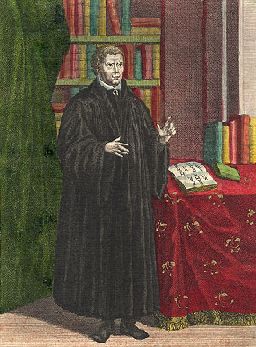THAT THESE WORDS OF CHRIST, “THIS IS MY BODY,” ETC., STILL STAND FIRM AGAINST THE FANATICS 1527

In the first place, it is certain that Zwingli and Oecolampadius agree in their understanding of the text, even though their words differ. For Zwingli’s expression, “This represents my body,” is exactly the same as Oecolampadius’ “This is a sign of my body.” The German language and all other languages concede that it is the same to say “laughing represents or signifies joy,” and “laughing is a sign of joy”; there is no question or doubt that “to represent or signify” and “to be a sign” are the same thing. But since the point at issue here is whether the word “is” necessarily means the same in Scripture as the word “represents,” Zwingli is obliged to prove this from Scripture. If he does not do this, his argument is mere dung. Similarly, Oecolampadius is under obligation to prove from Scripture that the word “body” necessarily means the same as the word “sign of the body.” If he doesn’t, he too is dung, and our text remains firm as a rock—“This is my body.” -Martin Luther

0 Comments:
Post a Comment
<< Home